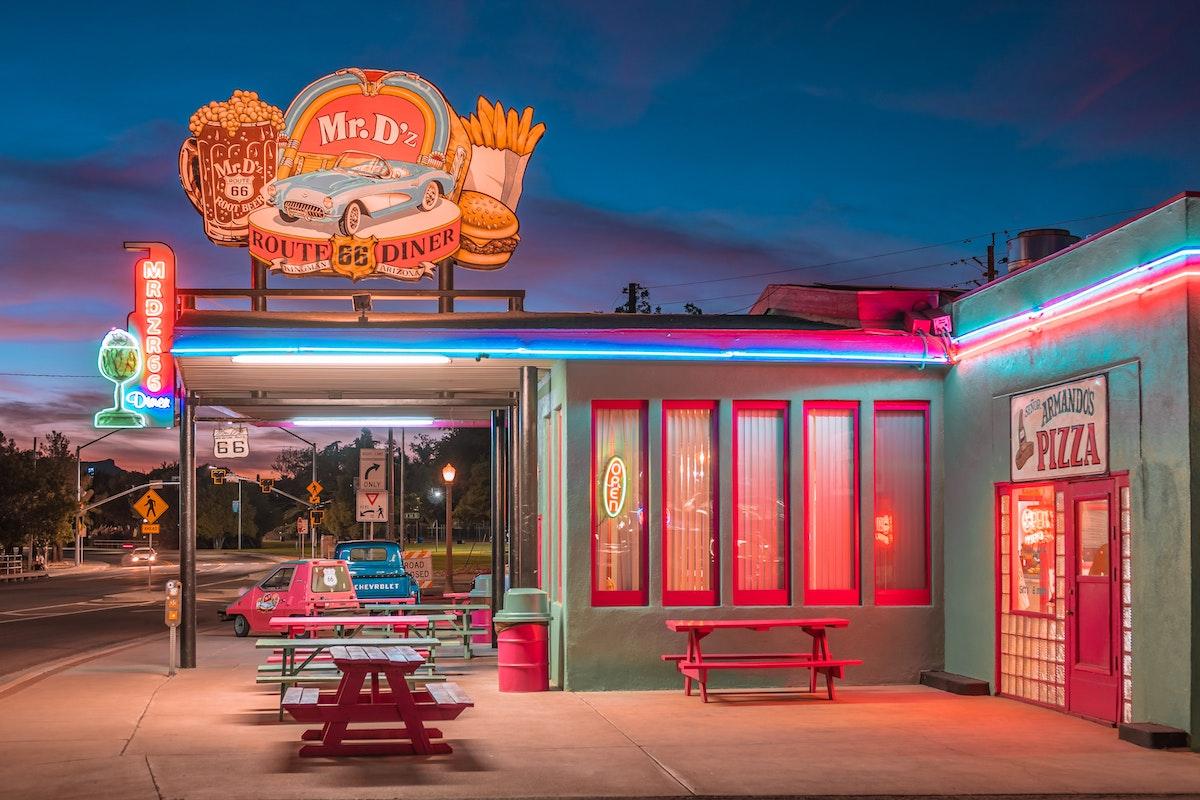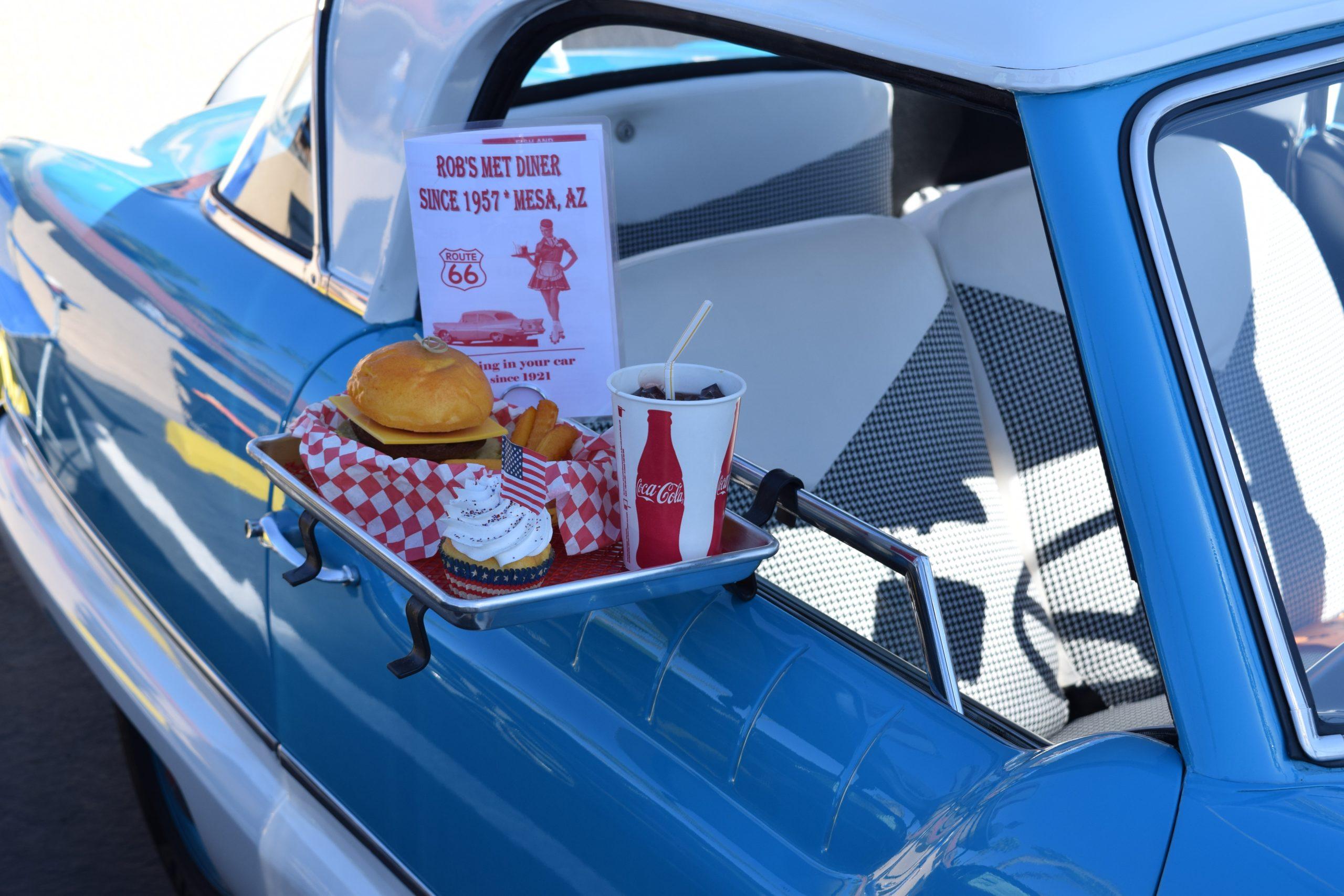The Wolf of Franchises: Tips for local entrepreneurs


Starting your own business can be really exciting, and it comes with a ton of benefits—flexible hours, autonomy to do what you love, and the ability to support your family, not to mention the value these businesses bring to their local communities.
But any small business owner will tell you that it can be difficult to build real wealth with just a single location. That’s where franchising comes in.
“You can live well with one or two locations,” says The Wolf of Franchises, a content creator and franchise expert based in New York, “but with a franchise, you literally can turn your local small business into a hundred million dollar brand—McDonald’s is the classic example there. It literally started out as a one-location burger joint in San Bernardino, California.”

The financial upside of franchises can be practically unlimited. So, if you’re feeling stuck financially as a small business, franchising may be a great solution.
But the franchise industry, so-to-speak, can seem shrouded in mystery. How does one start a franchise? What makes a good franchise business? These are the problems that The Wolf of Franchises is looking to solve.
“There’s little-to-no transparency in the franchise industry,” says the Wolf, “because for the most part, a lot of the tech is just stuck in the stone ages. The websites you’d get on if you want to research a franchise are really bad. There’s no centralized place to do everything you need to do to start a franchise.”
Read more about the pros and cons of business expansion.
The Wolf learned this first hand working at a franchise development company that helps small businesses owners effectively franchise their business, i.e. find franchisees, implement sales software, and generally understand what it takes to run a franchise business. Now, he’s using his industry expertise to bring the franchise world into the 21st century, and will soon launch more robust products and services for existing and prospective franchise owners.
We caught up with The Wolf, who prefers to keep his identity anonymous, to learn what small businesses should know about franchising, common misconceptions about the industry, and what makes a successful small business franchise.

Franchising is not a get rich quick scheme.
“A lot of people start franchising because they’re talented salespeople, and they think it’s gonna be easy to just sell a bunch of franchises and have private equity come in and buy them out. But a lot of the times, their unit economics aren’t great to start.
If your business isn’t that profitable, you shouldn’t be franchising. You’re effectively asking someone to spend, if it’s brick-and-mortar, typically over six figures to open a location, and you have to provide this type of information to prospective franchisees in what’s called a franchise disclosure document. You have to tell them what it will cost a franchise to open up a location, what additional capital is needed for your first three to six months, profit and loss statements from your other locations, etc.
I see brands all the time that are doing $70-80k in bottom line income, but the investment is like, $800,000 to $1.2 million upfront. So if I buy your business, it’s gonna take me 10 years to make my money back? That’s not a good return scenario, and so a lot of small businesses never realize their franchise dreams.”
You need repeatable operations…
“Your business can’t be too complicated. The best franchises that work are ones that you could train people on within a relatively short amount of time—like, two weeks or so is a good standard. It’s usually a mix of in person stuff at the franchisors headquarters or in a specific location as well as a lot of online classes on how to run the business and stuff like that.
This is why you don’t see many fine dining franchises, but you do see a ton of fast casual. Because fast casual, it’s quick and convenient food. It’s not like a five star restaurant meal, but the fancy restaurants have a lot of things that go into making them work, and it’s really difficult to execute. So, you need to make sure that your concept is simple enough to be franchised.”
And your supply chain is everything.
“Scalability really matters and you definitely need your supply chain to be scalable. I saw a business on Shark Tank recently called Cousins Maine Lobster—they do lobster trucks, and they started the business in Maine. So, if you’re gonna franchise that business, and there’s someone in Idaho who wants to be a franchisee, they won’t have the same access to the product from both a quality perspective or a margins perspective. It would be twice as expensive for a lower quality of product for that Idaho franchisee. That’s gonna hurt your ability to franchise this concept.”
Read more about how to generate more revenue for your business.

The franchise process takes time…
“When you franchise, there’s a lot of other transactions that the franchise owner has to make. They have to find a franchise attorney to review the disclosure document. They’ll also have to have the franchise agreements reviewed by an attorney. Then after that, they’re gonna have to go find real estate, so, they’re gonna use a real estate broker. Maybe they want to own the property, and they’ll use withco. And maybe they can’t afford the franchise with the amount of money in their bank account, so they need financing. The point is, it’s a process, and you’ll need to be patient and disciplined about all the steps.”
But your business can make a big impact.
“There’s a math tutoring franchise called Mathnasium that was started in the early 2000s. It got acquired at the end of last year by a massive private equity firm for over $100 million. That’s a huge financial upside of course, but there’s also a personal benefit. The founders developed this very unique curriculum that apparently works really well for kids who are struggling in math, and they felt really passionate about the impact they could have on kids and their education—that’s why they wanted to franchise, because it was a vehicle for scale. Their teachings are now implemented all over the country, because they found franchisees who were opening their own locations and implementing their curriculum. I mean there’s no better kind of return than that.”

Follow the way the cookie crumbles…
“I’m kind of a hater when it comes to food franchises. From an investment perspective, they’re usually way more expensive and the margins are much lower. That said, I’m obsessed with Crumbl Cookies. It’s really good. The numbers are between $350-690K to open a location, and the average net income is $357,000. That’s pretty wild for one location, especially for a simple cookie concept.
They were started by two guys who are cousins and really good friends and they were very tech savvy. Their first hire on the corporate side was a former senior engineer at Facebook. They built out their own point of sales system. Also, their marketing is unreal. They have over 8 or 9 million followers across all their social media channels, and they were only founded in 2017. They crush TikTok; they crush YouTube; they crush Instagram. So they have massive customer awareness. They should be a north star for anyone starting a franchise from a single business.”
And think about what needs innovation.
“There’s this laundry franchise called LaundroLab. I mean, it’s a laundromat. But they’re trying to turn laundromats almost into community centers. So you can do your laundry, but it’s really nice and modern and they have Wi-Fi and arcade games. And if one of their locations is big enough, the franchisee can even sublet some of the space to a coffee shop or something like that. So they have multiple revenue streams in a single space. I think they’re smart. Like who would think to innovate on a laundromat? But that’s the kind of thing that makes a great franchise concept.”
No matter where you are in the franchise process, it’s important to be thoughtful about your commercial real estate. Owning your business’s property will give you the best returns, but it can be cost prohibitive for many franchisees and franchisors—that’s where withco’s lease-to-own model comes in. We’ll help you secure the perfect space for your franchise and work to own it in just five years, all without having to front the cash for a hefty down payment.